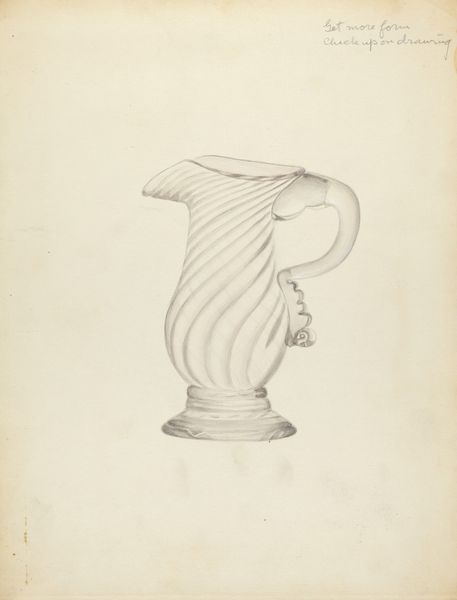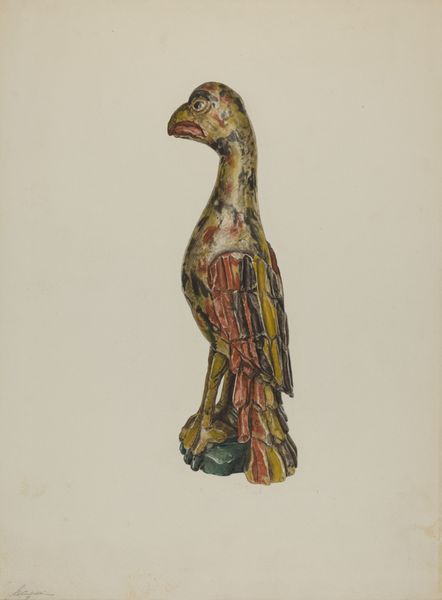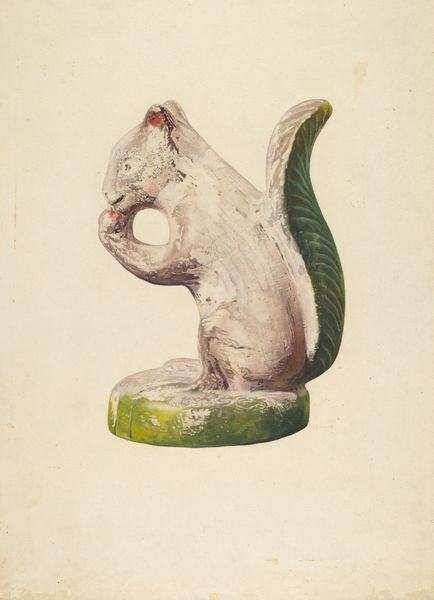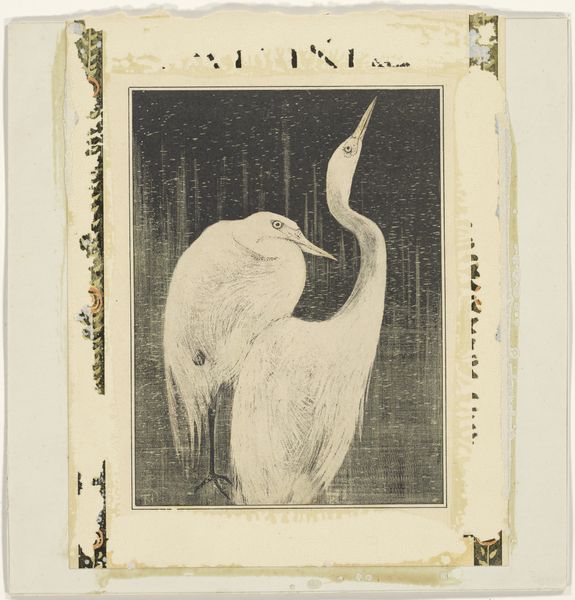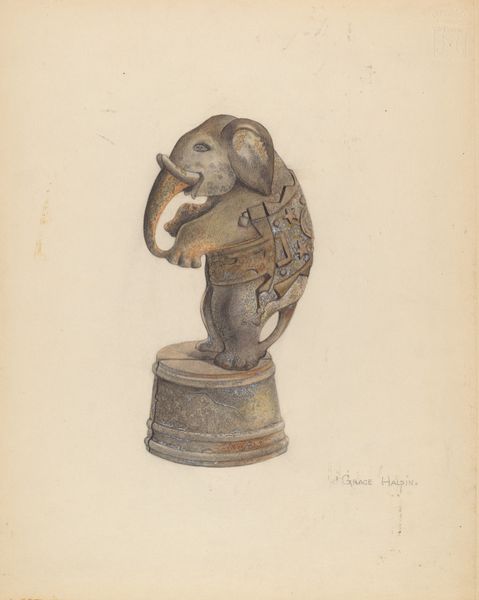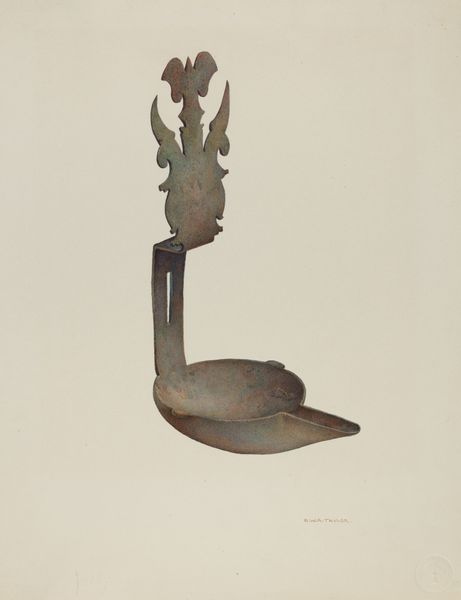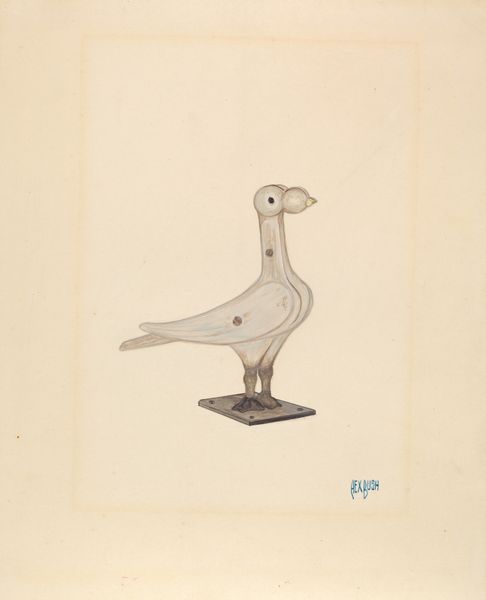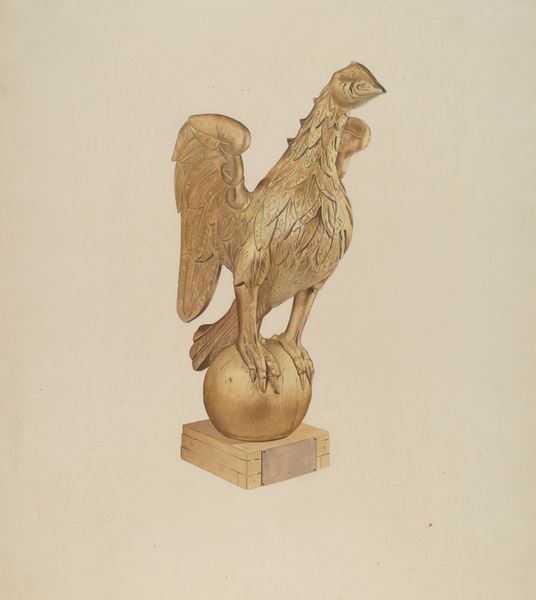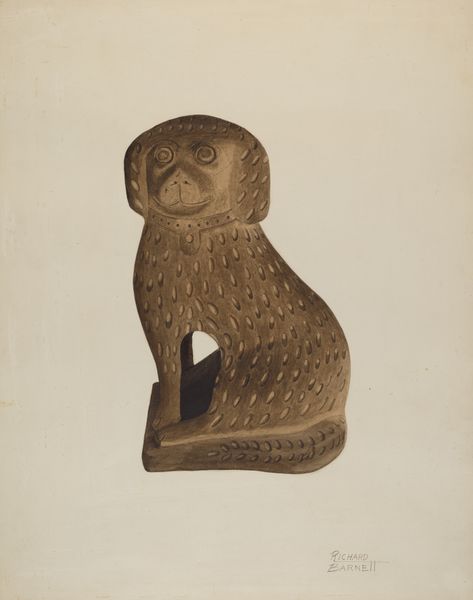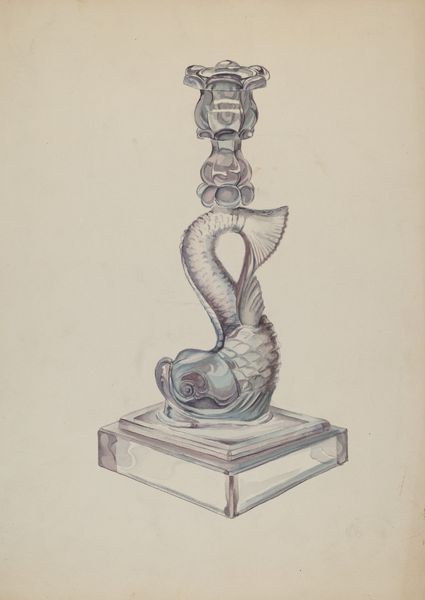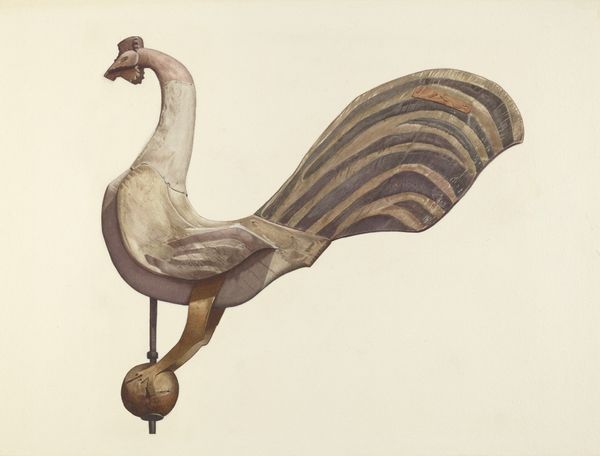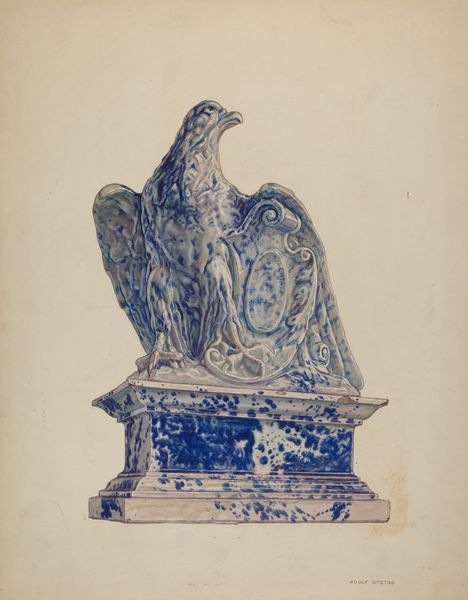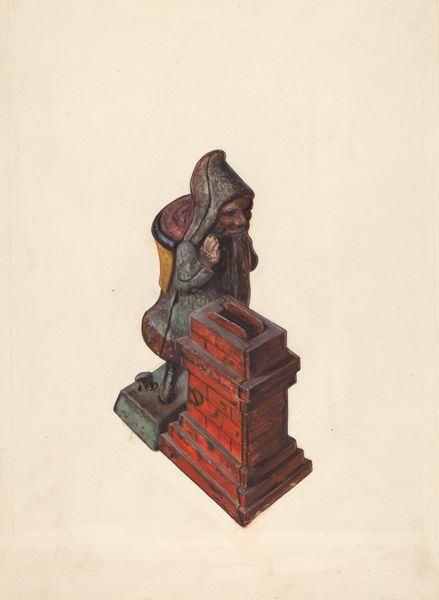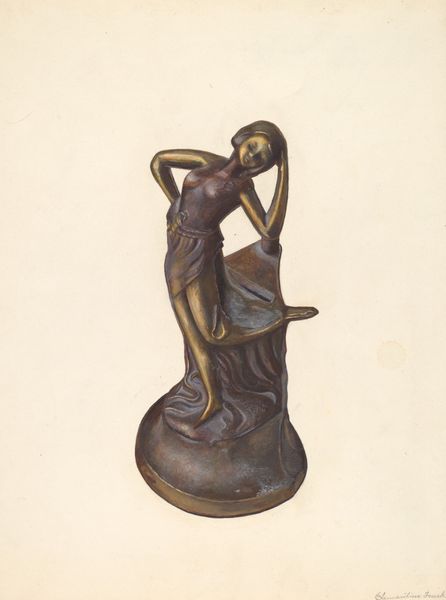
drawing
#
drawing
#
toned paper
#
water colours
#
caricature
#
possibly oil pastel
#
coloured pencil
#
underpainting
#
animal drawing portrait
#
watercolour illustration
#
remaining negative space
#
watercolor
Dimensions: overall: 30.2 x 24.7 cm (11 7/8 x 9 3/4 in.) Original IAD Object: 6 1/2" High 4 1/4" Base(dia) 4 3/4" Handle(length)
Copyright: National Gallery of Art: CC0 1.0
Editor: So, here we have Amos Brinton's "Owl Pitcher," dating back to around 1938. It looks like a drawing, maybe watercolor and colored pencil, on toned paper. It's so curious - it’s a drawing *of* an object, rather than being an object *itself*. What strikes you when you look at this? Curator: It's interesting to see Brinton, presumed to be primarily a painter, create what is essentially a record. Consider the socio-economic context. Was this created for documentation? Is this maybe preparatory design work for ceramic production? The choice of media further complicates things. Watercolors suggest a concern with the visual effect, rather than technical accuracy. Editor: So you think that the goal here isn’t necessarily just to capture what the pitcher looks like? Curator: Precisely! Think about the power dynamics inherent in how museums collect and categorize objects. Why preserve *this*? How does this fit with Brinton’s other work? The artist is choosing to depict a functional item as a standalone work, thereby conferring some kind of cultural worth upon an everyday object. Editor: The political context gives the image so much more depth, I hadn't considered the implications behind the choice of medium or subject. It is interesting to me now how the animal connects to social status of the owner of the jug. How is this image used as advertisement and branding of wealth? It makes me appreciate art history more! Curator: Exactly! Consider how these visual languages are created and perpetuated over time and who benefits. It all encourages me to think more about what art, and our perception of it, says about our society. Editor: It is a completely fascinating. Thanks for highlighting that!
